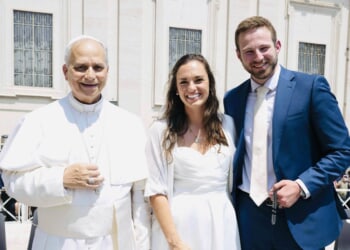Just how independent is the Federal Reserve? Former Texas Sen. Phil Gramm and former Texas Rep. Jeb Hensarling recently commented on the Federal Reserve’s independence with respect to conducting monetary policy. On first reading they make a compelling case that the Fed is independent of the executive branch but not the legislative branch with respect to monetary policy. Upon further review their argument falls short.
Gramm and Hensarling note that the Constitution’s Article I gives Congress the power to coin money and regulate its value. They observe that in creating the Federal Reserve the Congress delegated that power. Thus in “carrying out narrowly defined monetary policy, the Fed isn’t subject to executive authority.”
By implication, though they don’t say so, the authors argue the Fed is not independent of the legislative branch with respect to monetary policy, which is mostly true but also somewhat worrisome. It is worrisome in part because Congress lacks any definite means of influencing monetary policy except through legislation.
The argument regarding the Fed and the executive branch starts to unravel in that the relevant statutes explicitly create a role for the president in nominating the Chair and the other six members of the Board. That sure looks like the Fed is part of the executive branch. If the president, subject to Senate confirmation, picks who runs an outfit that is part of the U.S. Government, then that outfit would seem part of the executive branch. (RELATED: Watch As Scott Bessent Educates NBC News’ Kristen Welker About How Fed Sets Interest Rates)
Moreover, all other Federal agencies created by Congress reflect a delegation of some power created by the Constitution. For example, the EPA was created by an act of Congress in 1970 yet is part of the executive branch. The Fed is no different.
To strengthen their case, Gramm and Hensarling distinguish monetary policy from the Fed’s regulatory activities which obviously express executive branch functions. However, the Fed’s regulatory activities reflect authorities granted by Congress, authorities it has through the Constitution.
Thus, there appears no meaningful distinction between the Fed’s congressionally created monetary policy authorities and its regulatory authorities. If the latter falls under the executive branch, then so, too, does the former. One can appreciate Gramm and Hensarling’s attempt to firewall monetary policy, but their firewall is flimsy tissue.
Nor does such a determination materially affect the Fed’s “independence,” which I generally support, because the Fed is not nor should it ever be wholly independent. On the contrary, given the Fed’s enormous power over monetary policy and thus the economy, the Congress and the president should always keep a close rein on the Fed.
The Fed’s independence is checked in many ways. Most obviously, the president eventually gets to pick a Chair and Vice-Chairs to his liking, along with the other four Board members, subject to Senate confirmation. Also, the Fed and the Vice-Chair for supervision are required to appear periodically before the House and Senate to report on the economy and the Fed’s performance. The Fed is also subject to an outside audit and internal Inspector General oversight.
Finally, the most powerful checks on Fed independence are the financial markets and the economic aggregates that may tolerate sustained small mistakes but painfully punish big Fed errors.
The Fed must fall under one of the branches of government. The judicial branch is out of the question. The legislative branch established the Fed, and the Fed executes its responsibilities thereunder and it does so as part of the executive branch. The alternative is for the Fed to fall under the legislative branch and isn’t that a scary thought. Just imagine shadow Fed Chair Bernie Sanders. Eeeek.
JD Foster is the former chief economist at the Office of Management and Budget and former chief economist and senior vice president at the U.S. Chamber of Commerce. He now resides in relative freedom in the hills of Idaho.
The views and opinions expressed in this commentary are those of the author and do not reflect the official position of the Daily Caller News Foundation.
All content created by the Daily Caller News Foundation, an independent and nonpartisan newswire service, is available without charge to any legitimate news publisher that can provide a large audience. All republished articles must include our logo, our reporter’s byline and their DCNF affiliation. For any questions about our guidelines or partnering with us, please contact licensing@dailycallernewsfoundation.org.





![Gavin Newsom Threatens to 'Punch These Sons of B*thces in the Mouth' [WATCH]](https://www.right2024.com/wp-content/uploads/2025/08/Gavin-Newsom-Threatens-to-Punch-These-Sons-of-Bthces-in-350x250.jpg)
![ICE Arrests Illegal Alien Influencer During Her Livestream in Los Angeles: ‘You Bet We Did’ [WATCH]](https://www.right2024.com/wp-content/uploads/2025/08/ICE-Arrests-Illegal-Alien-Influencer-During-Her-Livestream-in-Los-350x250.jpg)
![Black BET Billionaire Donor Stuns Democrats, Gives $500K to Winsome Earle-Sears [WATCH]](https://www.right2024.com/wp-content/uploads/2025/08/Black-BET-Billionaire-Donor-Stuns-Democrats-Gives-500K-to-Winsome-350x250.jpg)







